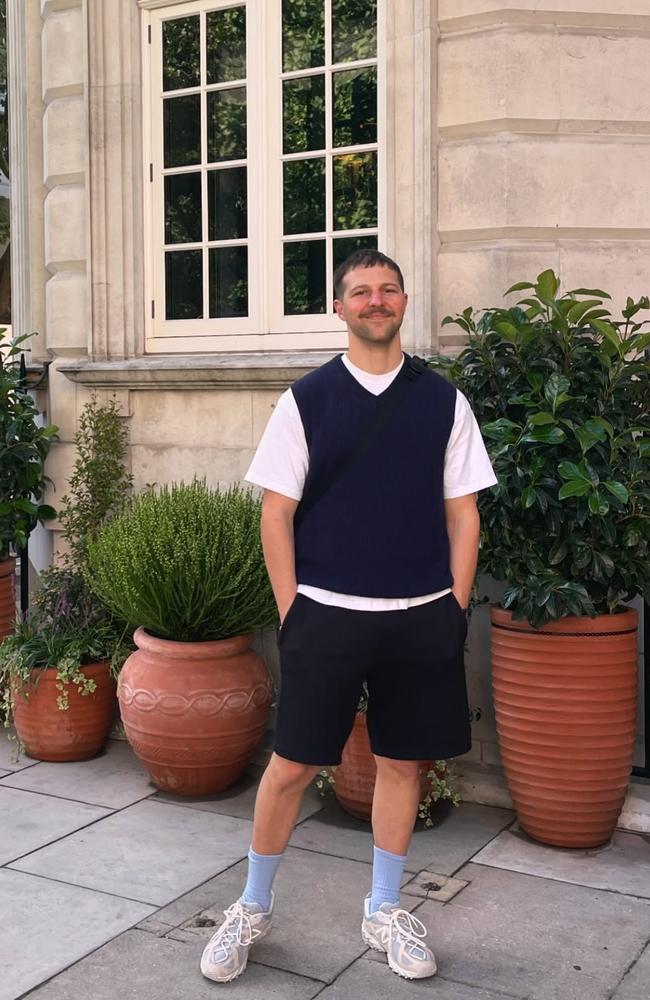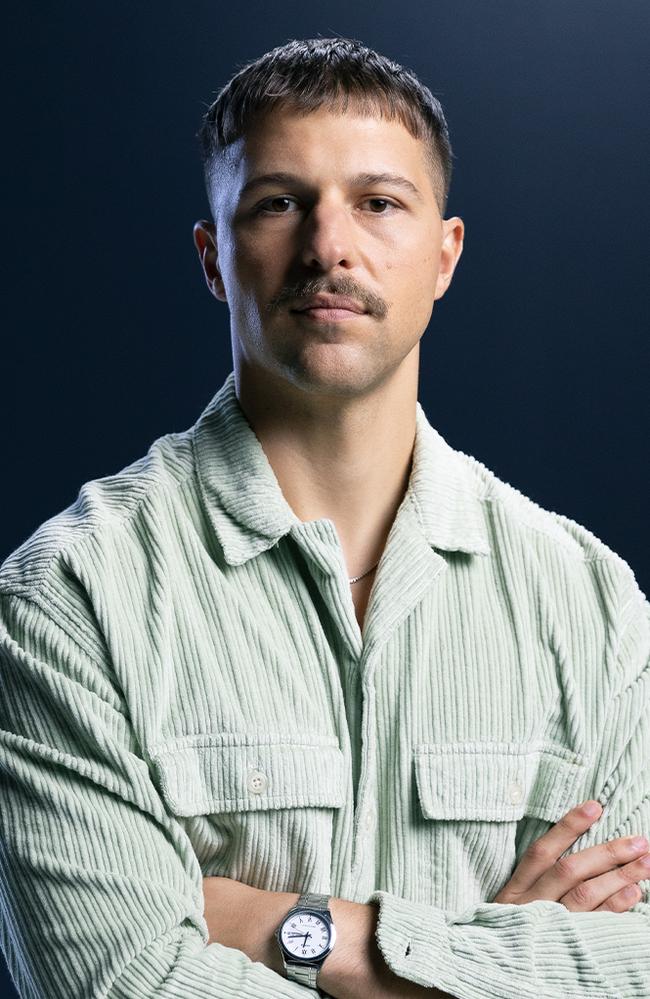Horrific 1950s attitude leaking into schools
An Aussie school educator has revealed what happens when he talks about “jarring” topics with schoolkids, and the results were surprising.
Lifestyle
Don't miss out on the headlines from Lifestyle. Followed categories will be added to My News.
A consent educator has revealed his biggest win while confronting “jarring” topics such as rape culture.
Daniel Principe is a youth advocate and educator. He primarily focuses on consent education and healthy relationships. Mr Principe has a background in health, plus a postgraduate in media and PR. He was very interested in how media impacted our sense of self and the way we view the world.
It led to him speaking in schools on this topic. It was a no-brainer why he was asked to be an ambassador for the Australian government’s Consent Can’t Wait campaign.
“I kind of playfully said, ‘You guys know what I talk about’. I don’t always talk about the most fluffiest subjects, given that I confront things like pornography and rape culture. It is pretty jarring, pretty horrific to have to discuss these things, but they are the experiences of lots of young people navigating that in this culture.”
The Campaign is designed to address a problem One in five women and one in 16 men experience sexual violence from the age of 15. For women, sexual violence most often occurs between the ages of 15 and 19. The program is intended to build a community understanding of consent.

Over the last year, there have been conversations that stuck out for Mr Principe. However one that “energised” him was a conversation with 120 Year Nine boys in regional Queensland.
He’d spent half a day with them talking about consent and relationships. And, after approval from a teacher, asked what was missing in pornography.
“Perhaps most impressive is that 120 of these boys totally leaned in. They shared this empathetic space together. No silliness but a desire to have very loud, energetic but meaningful discussions. When I invited them to share, in front of their peers, if they wanted to, 15 boys ran to the front,” he said.
I passed them the mic and they said ‘emotional connection, consent, love, romance, intimacy, the rest of their relationship, healthy communication’.
“To know and now see more young people leaning into these conversions energises me — and shows that when we give young people the opportunities and encouragement they demonstrate insights and courage to have these conversations and learn from each other about respect and consent.”
Mr Principe said consent conversations are at a “breaking point”. He said ranking lists where women are described a “unrapeable” and deep fake pornography are on the rise — and technology companies need to do their part.
“It’s a huge issue for big technology companies and government to not just regulate this, but to eradicate it,” Mr Principe said.
“It shouldn’t be possible – 12, 13 and 14-year-olds can quickly access these websites. If it exists, people will sadly take advantage of it and obviously girls are bearing the brunt of it.”
Mr Principe said it’s almost as though a backwards step is being taken. He said stereotypes that belonged in the 1950s were being reinforced through jokes and toxic influences. He described it as almost an “unfair fight” for parents.

“I think we don’t appreciate the scale of how much online content is sexist and racist and glorifying these realities. From domestic violence to sexual assault to paedophilia — these are the things that are being circulated on Instagram, Tiktok and X in an attempt to push this ‘dark humour content’.”
He said that these ranking lists and deep fake pornography are on the rise thanks to porn sites. “There are harmful impulses that drive these harms that aren’t just motivated by silliness and a spur of the moment. The usual power over women, degrading them and putting them in their place,” he said.
“The ranking lists create a sense of ‘bonding’. It’s an initiation of sorts for these young people. It’s a counterfeit form of male intimacy.
“It’s a real cultural problem. There have been schools that say they don’t have these problems at their campuses, and then 12 months later we see things like this emerge. And to be clear, it’s not the school’s fault – it’s much more deeply ingrained in our culture and needs a whole of community response.”
But, when is the right time to address these conversations as a parent? He said it’s an ongoing conversation.
“It’s lots of teachable moments. It’s conversations that will pop up. You can look to things in the media that can facilitate an opportunity to have this conversation with your young person,” he said.
“So for example when Taylor Swift had deepfakes made of her, that would be a great conversation starter because that was news all across the world.”
He said porn makes up 30 per cent of what is online and that pop ups are being displayed to children in Year Five and ix.
“It’s a pretty unfair fight, but we have to engage young people in these conversations, which is something that I feel privileged to do,” he said.
Mr Principe is a nominee for New South Wales Australian of the Year.
“Humbling, especially as a Perth boy, the impostor syndrome is extra real having been chosen to represent NSW alongside three incredible women who are all inspiring examples of grit and grace,” Mr Principe described his nomination.
“I’m grateful to have the opportunity and platform to speak about this very important and very real issue. There’s clearly been a mainstream cultural shift and I feel privileged to be able to continue speaking about it and helping to make change where I can.”
Originally published as Horrific 1950s attitude leaking into schools





